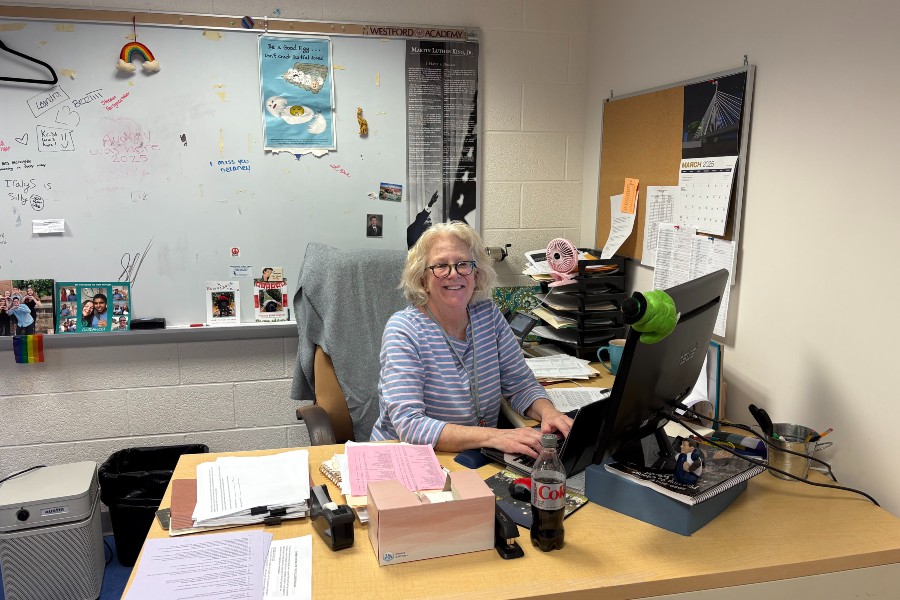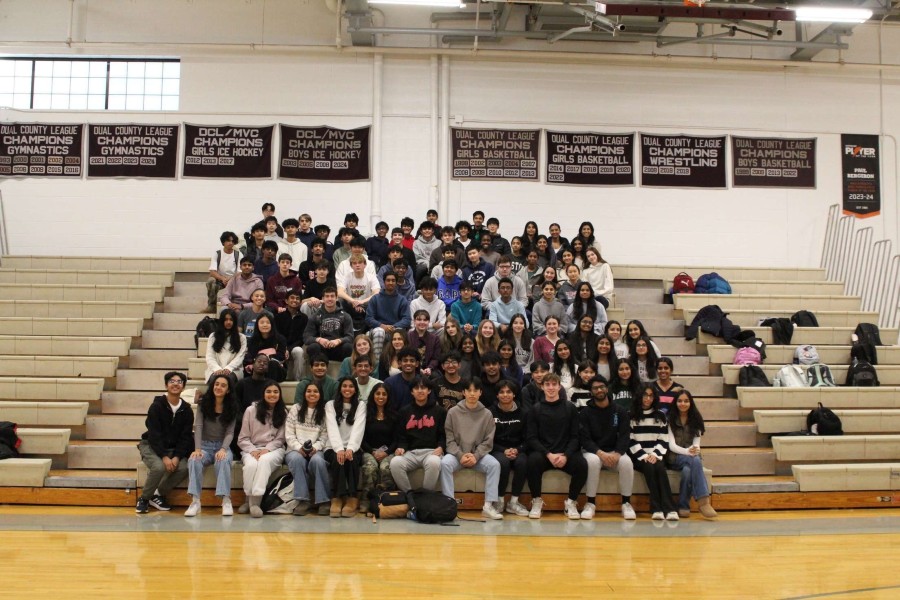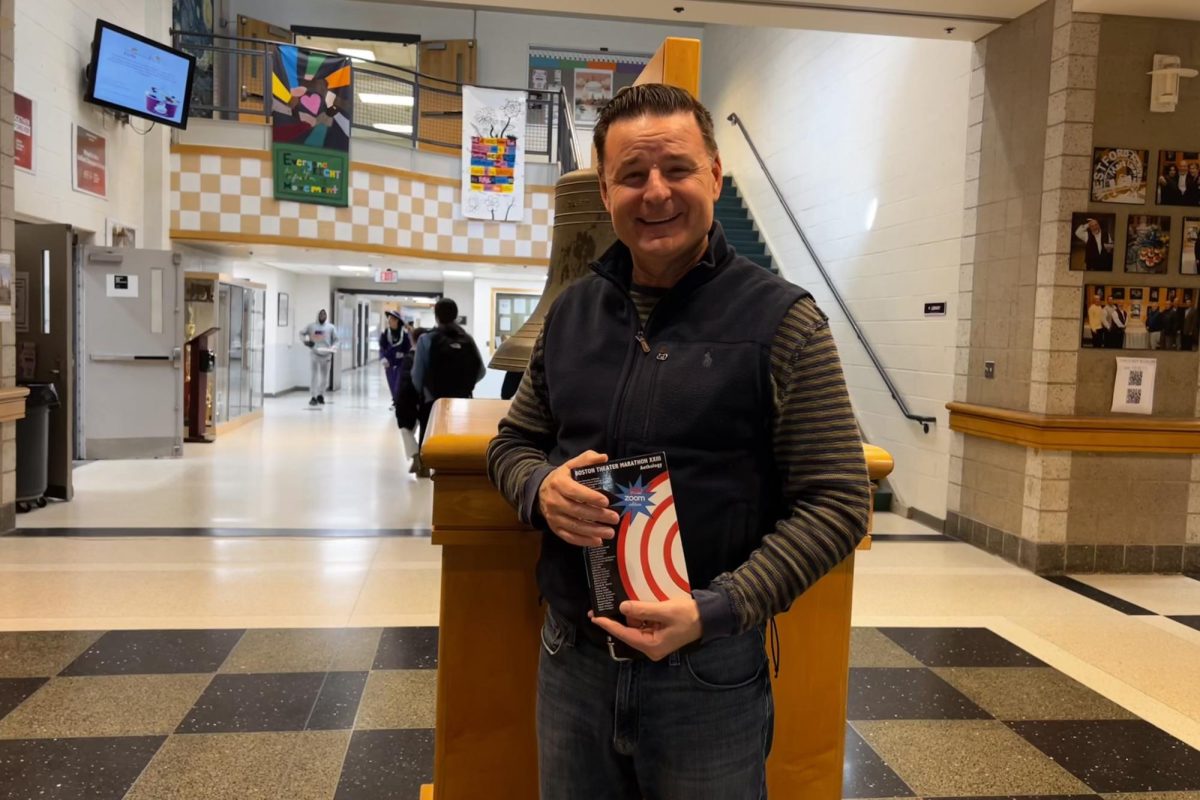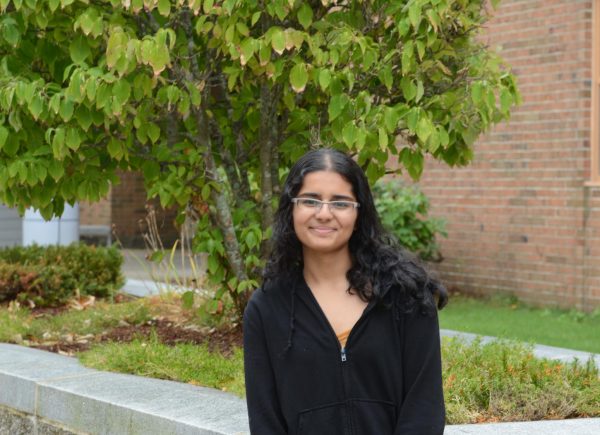When Westford Academy Theater Arts created their first ever mission statement in 2020, their goal was simple: adapt to a growing world. As they completed the phrase “When we make theater,” WATA emphasized their commitment to amplifying voices left unheard, fostering an inclusive space for all, and ultimately producing thoughtful pieces that reflect human experience. Four years later, WATA continues to bring these values to the forefront, both on and off stage, with their submission to the Massachusetts Educational Theater Guild (METG) festival: Disgraced.
The play, written by Ayad Akhtar, sets itself apart with its nuanced exploration of identity, religion, and politics. After a successful preliminary round of the festival on March 2 at WA, WATA will be advancing to the semi-final stage on March 9 at Sharon High School. The show is also scheduled for its final WA performance on Thursday, March 7th at 8:00 p.m, with general admission tickets priced $10 at the door.
(Addition awards earned by WATA students for the METG preliminary round listed below)
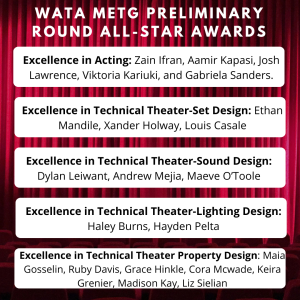
At its core, the Pulitzer Prize-winning play centers around an internally conflicted Pakistani-American lawyer, Amir Kapoor, played by senior Aamir Kapasi, who has yet to come to terms with his Muslim heritage. Kapoor’s wife Emily, played by senior Gaby Sanders, on the other hand is a white women who finds fascination in Islam. Set in a post 9/11 America, conversations escalate into heated arguments when the pair host a dinner with colleagues, exposing underlying prejudices and containing several depictions of Islamophobia, anti-semitism, and domestic violence.
“It’s not a play that makes you feel good inside, that’s for sure,” co-director Michael Towers said. “But it is a play that will provoke you to have conversations and to, hopefully, carry those conversations out into the world.”
As the play explores territory often considered too sensitive for the high school stage, the decision to tackle “Disgraced” was not made lightly. According to Towers, when he first introduced it to his Acting II class last year, the purpose had simply been to read it as a quality work, rather than as a play to produce. However, this changed as he witnessed the impact of the play on his students.
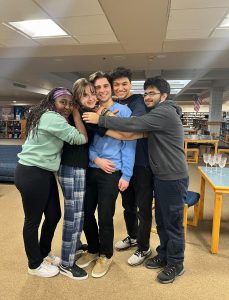
“I had one student who waited for me after completing it and embraced me,” Towers said. “He said, ‘Thank you, this is the first time I have seen a play that has characters that look like me.’ From that moment, my commitment to producing the play was immediate […] and I knew this would be a deserving piece for a community that was ready to have these conversations.”
This student – as Towers later shared in the ‘Talk Back with the Cast and Production Crew’s’ discussion after the show’s debut – was Kapasi himself.
“To read a play with a character that pretty much had my name in it and went through similar experiences was impactful,” Kapasi said. “[…] You don’t see much South Asian representation in plays commonly used in high school theater, but it’s really important that these voices and stories be heard. That’s what makes it more impactful to me than most other shows we’ve done.”
Towers then composed a letter to the playwright asking for permission to perform and adapt the play, incorporating Kapasi’s personal story in the message. It wasn’t until 10 months later, in December, when Towers received a response and the play was confirmed as WA’s submission.
Although the play was written originally in 2013 and loosely selected last year, many of its themes of religious conflict came closer to home with the escalation of the Israel-Palestine conflict in October. According to Towers, this added a deeper layer of relevance, as the play reflected tensions taking place in the real world, rather than shying away from it.
“Art has a responsibility to address the circumstances of the world. Let’s not talk about this in a historical context. Let’s talk about it in the living present,” Towers said. “That’s the job of the theater. So the timing, it’s extraordinarily relevant.”
According to Assistant Director junior Maeve O’Toole, before transferring the play to a stage, students were tasked with cutting the script down from 70 minutes to 40 to meet strict METG requirements, as well as reading and analyzing three other works by Aktar.
“Even though we cut out a lot of the script, and it was challenging, we also, in our play, were still aware of the parts and tried to infuse that in the person and characters,” Sanders said. “We incorporated the soul of the playwright into the play, even though it is a cut-up version.”

“I thought it was very important that if we’re going to have a play that’s talking about discrimination, and the color of people’s skin being a determining factor,” Towers said. “[The play] isn’t just about portraits, it’s about faces, so let’s put that on the poster.”
(Deepa Gautam)
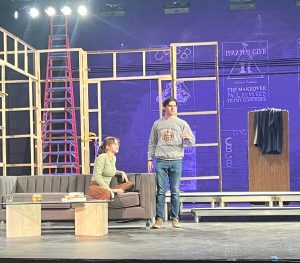
“It’s hard but it’s important that we put forth the ugly side of these characters that we’re putting on stage. If we just protected them and made them all out to be good people, the work wouldn’t be nearly as compelling,” senior cast member Josh Lawrence said. “It’s important to remember that all characters, as we, are flawed.”
According to O’Toole, other stand-out aspects of the production lied in the technical work behind the scenes, including set design and sound production. For one, sound designers junior Andrew Mejiha and senior Dylan Leiwant worked to incorporate music through the theater’s speakers and within the play’s world, offering seamless transitions from scene to scene. The entirety of the play also involves only one, meticulously designed, set: the Kapoors’ apartment building.
“I just love seeing these little moments of when the sound really clicks or when the lights are in a certain way. I get goosebumps every time, it’s just so great being able to see each and every element come together after we’ve worked on it for so long,” O’Toole said.
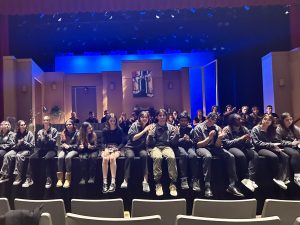
As the curtains closed, the play comes to an inconclusive end, with characters’ lives seemingly in shambles. Instead of answering the difficult questions it poses, the piece offers them up to the audience. To facilitate this conversation in real-time, the crew held a ‘Talk Back with the Cast and Crew’ answering audience questions and discussing the play’s impact after the play.
“Ultimately, this show is a lot shorter than others, but it packs so much in there that is important to hear, to see, and to talk about,” Kapasi said. “Even if you think it doesn’t apply to you, it does.”



